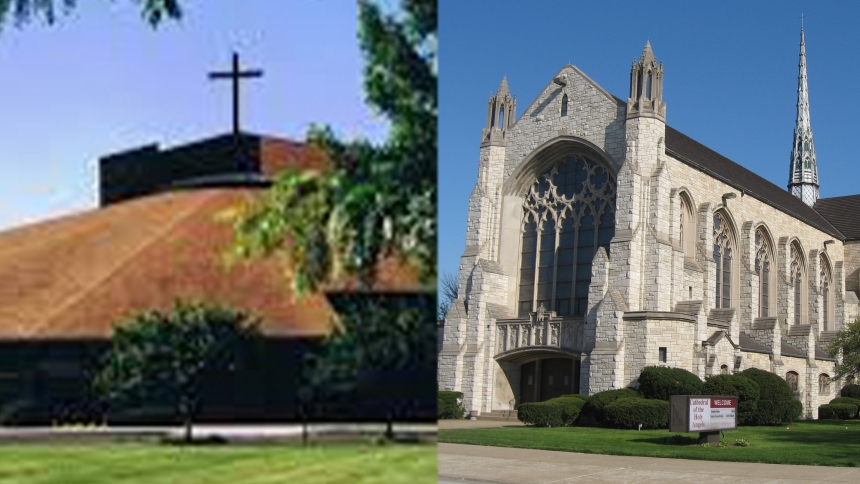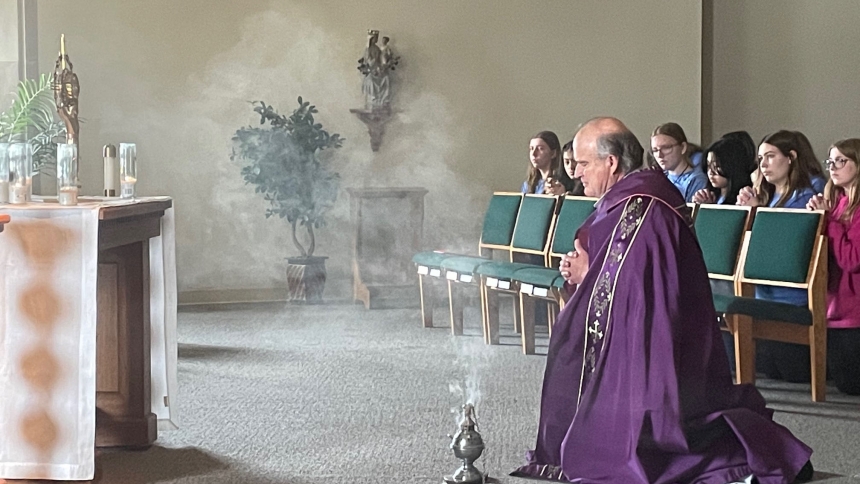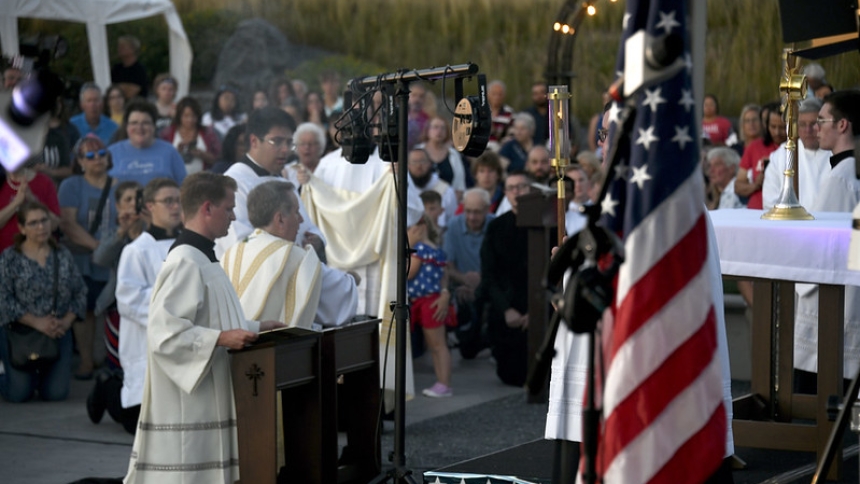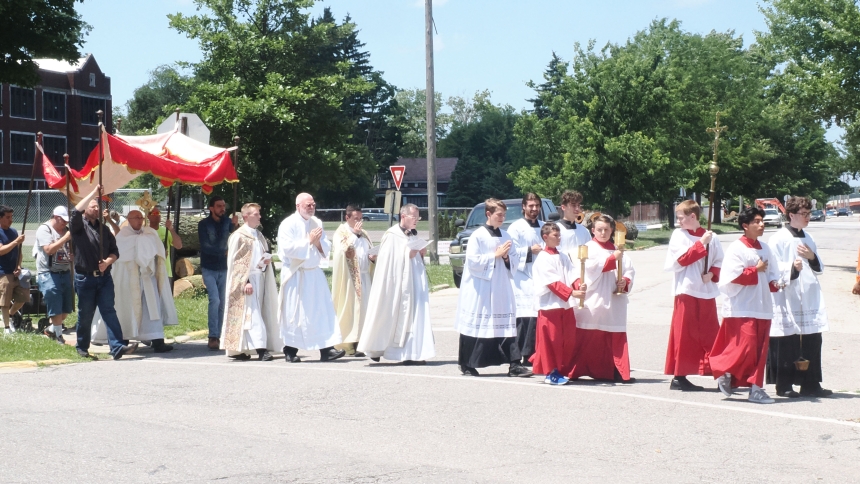
Now that spring is here, I am enjoying watching the sun rise from my workroom window. It would be more accurate to say that I enjoy the subtle shift from night to day, from darkness to light.
The shift is gradual, and to perceive the shift accurately, I must extinguish my desk lamp and peer out the window up against which my desk is placed. For with the lamp on, the window before me is merely a mirror. When I turn off the lamp, however, I see that light is actually beginning to melt away the darkness. The key word, there, is “beginning.” The sun has yet to pierce the horizon; only the glow of dawn is perceptible.
It is this gradual shift from darkness to light that smacks of this passage: “…the darkness is passing away, and the true light is already shining” (1 John 2:8).
I like that passage a lot, for I believe it speaks volumes about our world right now.
We hear much moaning and groaning these days about the state of our country and world. Such observations often come complete with the shaking of one’s head and an exasperated exhale upon the conclusion of ticking off a litany of maladies.
It’s not that I disagree with the litany, rather, I wonder if we are not putting our current woes into perspective. I wonder if our reactions to those things that makes us grind our teeth lack context.
For example, COVID-19.
In December 2020 I heard on the news, and I read in newspapers, the following in summing up the waning year: “A year like no other.”
Are you kidding me? Can you say December 1944? In the Ardennes? American casualties reaching 89,000, including 19,000 killed in the Battle of Bulge. Deadliest battle of the entire Second World War for the United States.
How about the Spanish flu of 1918-1919? The CDC estimates that the virus killed 500 million people worldwide.
Let’s not forget the ol’ bubonic plague, either. The Black Death that struck Asian and Europe in the 14th century wiped out one third of Europe.
I point out these historical events to show that humanity has indeed suffered calamities on par with COVID-19 in the past. The hubris of us moderns is galling.
But a deeper issue is in play, here, too, and that quotation from 1 John 2: 8 is the passage that convicts. The issue is this: If we really believe that Christ’s Paschal Mystery does what we claim it does, then Christians cannot succumb to “the world’s going to hell in a handbasket” mindset. For the world has been redeemed. The Kingdom of God is, in fact, here.
But the “darkness” has not completely passed away. Rather, the “darkness” is in the process of “passing away.” The Kingdom is here, but not fully. Redemption is complete, but still not fully realized.
My point is that Christians are not to be doom-and-gloom folks. You want to evangelize a culture you believe is dying? Give that culture an alternative view of reality by living a life of joy and hope. Don’t condemn, celebrate. Don’t moan, rejoice.
St. Paul nailed it: “Rejoice in the Lord always. I shall say it again: rejoice! Your kindness should be known to all” (Philippians 4:4-5). Give people a positive, not a negative.
St. Pope John Paul II said that we live in a culture of death. And although the alternate realty which we Christians offer is certainly pro-life, the alternate reality does not end there. The alternate reality lies in showing the culture of death that this life has purpose, that there is something greater than ourselves, that this life is a mere blip on a journey that lasts forever, that virtue is real and attainable, and that we need not be slaves to our vices.
When the sun finally creeps above the horizon, the darkness of the long night is dispelled. We can see clearly. The air swirls with aroma you can almost taste. Our task as Christians is to show the culture that it, too, can see, smell and taste. That is far preferable to darkness.
The darkness is indeed passing away, people. The Paschal Mystery of Christ is the ticket. What do you say you and I help dispel that darkness?
Deacon Mark Plaiss teaches in the Department of Religious Studies at Carmel Catholic High School in Mundelein, Ill. Contact him at mplaiss@carmelhs.org.



